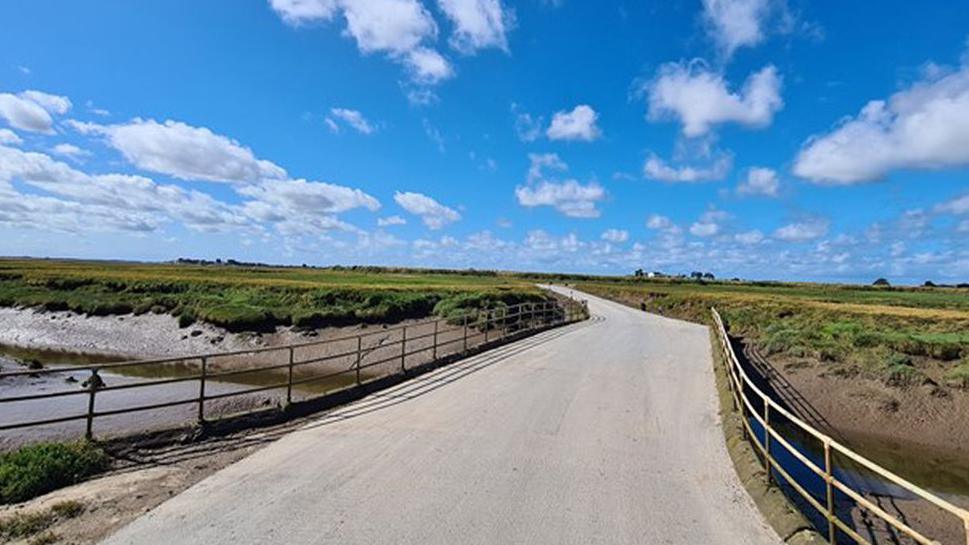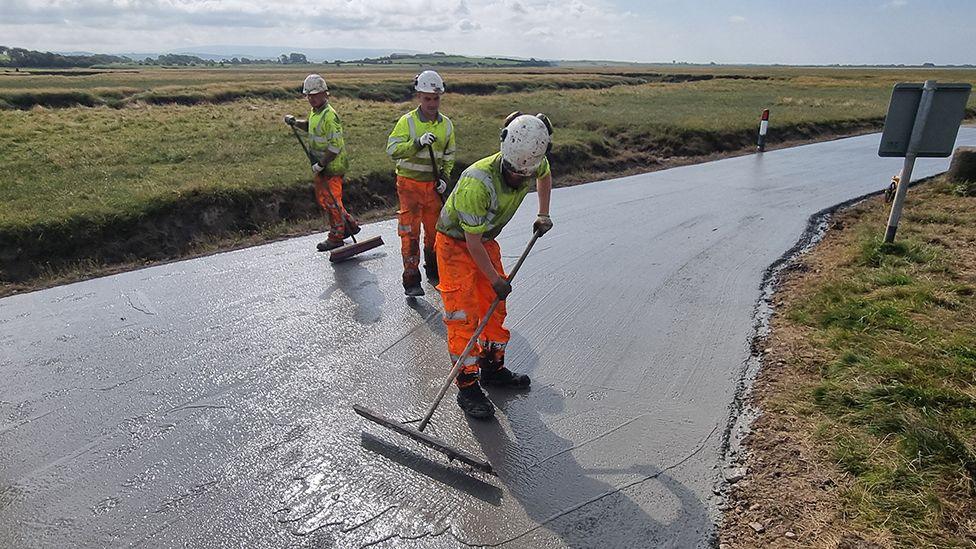Resurfacing submerged tidal road 'a very tricky job'

The causeway at Sunderland Point links the mainland to a small hamlet of about 25 homes
- Published
Work on the "very tricky job" of resurfacing a Lancashire road that becomes submerged by the rising tide each day has been completed.
The causeway at Sunderland Point, at the tip of the peninsula between the River Lune and Morecambe Bay, links the mainland to a small hamlet of about 25 homes.
When the tide comes in, it closes off the road for several hours, making the hamlet an island.
Due to the way the tide flows, the ideal opportunity to resurface the road only arises during one week each month, and it needs to be a warm, dry day so the material can set fully, Lancashire County Council said.

Due to the way that the tide flows, the ideal opportunity to resurface the road only arises during one week each month
Rupert Swarbrick, cabinet member for highways and transport, said: "It's a very tricky job to undertake as the conditions have to be just right, so we took an urgent decision to ensure we didn't miss this small window of opportunity.
"The area is beautiful, with stunning views. It is important that the families living there are able to access the mainland all year round, as well as visitors, despite the high tides affecting wear and tear on the road surface."
Sunderland Point houses a memorial to a young African slave, Sambo, who is thought to have arrived at the port in 1736.
For years his grave was unmarked, until 1795 when a local schoolteacher raised money for a memorial.
Listen to the best of BBC Radio Lancashire on Sounds and follow BBC Lancashire on Facebook, external, X, external and Instagram, external. You can also send story ideas to northwest.newsonline@bbc.co.uk, external
Related topics
- Published12 August 2014
- Published16 November 2010